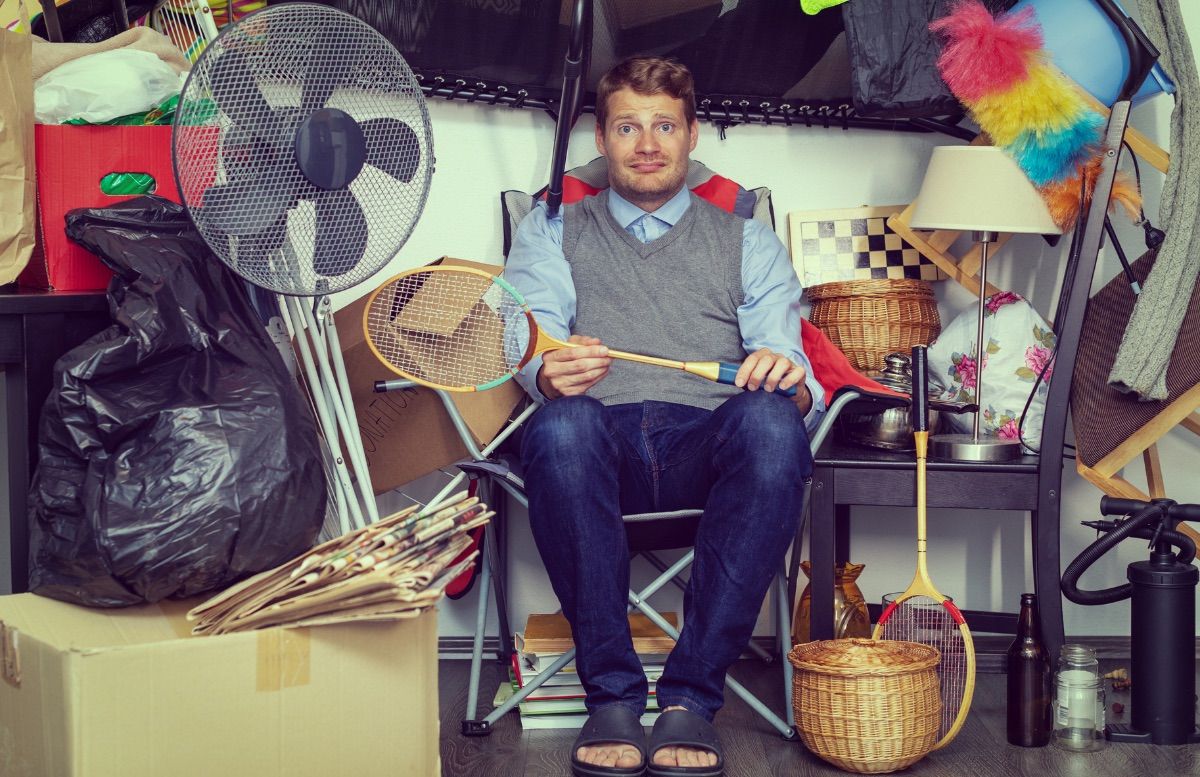
What Causes Hoarding Behaviors in Elderly Loved Ones?
It’s important to grasp a thorough understanding of hoarding in order to assist an elderly person who suffers from it. Keeping a few collectibles in the house is not hoarding. But what causes hoarding behaviors in our elderly loved ones?
What Causes Hoarding Behaviors?
The fact is that seniors who hoard have a compulsive drive to find and keep things, regardless of their value.
To help your loved one stop, you must first determine their level of hoarding and any associated diagnoses.
There are five levels of hoarding, each of which is progressively more troublesome.
Perhaps there was a period in your youth when you observed your parents’ memorabilia and felt it was sentimental. As you grew older, you observed that collectibles seemed to overtake the house and that there was also more stuff, including old newspapers, products from online shopping sprees, and other diverse items.
Perhaps you have also seen that your parent(s) have neglected a number of items in the house, and as a result, rodents and their droppings have appeared. Level 5 hoarding is how to describe this circumstance. Hoarders who are at level 5 often have cluttered bathrooms and kitchens, pet waste on the floor, and decaying food in the refrigerator.
What is an Appropriate Response to the Hoarding?
Let’s talk about how you should react if you see that your parent(s) have developed a hoarding problem?
One needs to ask for assistance when they have an addiction, but they shouldn’t be pushed too far. Authorities get involved with some hoarders after a 911 call for assistance. If First Responders are unable to enter the house during an emergency, it may lead officials to declare the home to be condemned. The person would have to be put into assisted living in this case.
As you might expect, elderly hoarders frequently reject home health care or put off necessary medical procedures like surgery so that no one will enter their home. Their lack of “independence” is demonstrated by their self-neglect and decreased quality of life, which increases their need for stable living arrangements, such as Senior Living or living with family.
Why Does My Aging Parent Collect Things?
The reason why the elderly hoard is unclear. It could be brought on by despair, dementia, OCD, or a traumatic incident. The greatest course of action is to speak with your loved ones and let them know that you value their safety and well-being. Never pressure a hoarder into making a decision; instead, let them know you are available and ready to proceed at their pace. As a coping tactic, they will “shut down,” withdraw to isolation, and in some cases start to spiral, ordering more things or gathering more things.
Hoarding statistics: About 75% of those who are diagnosed with hoarding also have a co-occurring mental illness. Major depressive disorder, social anxiety disorder/social phobia, and generalized anxiety disorder are the three co-occurring disorders that occur most frequently.
According to a recent study, 6.2% of adults over 55 exhibit hoarding behavior, compared to 4% of the general population.
Along with the physical risks already mentioned, hoarding also increases the likelihood of falls in the home, causes unsafe or unhygienic circumstances, and may occasionally be a sign of Alzheimer’s disease or another mental disorder.
All three are a PART of compulsive hoarding:
- A person accumulates a lot of things, even those that most people would consider unimportant or of little worth.
- These things clutter the home and prevent the owner from using the space as intended.
- These things cause stress or difficulties with daily tasks.
How Do I Get My Parent to Tidy Up?
A senior must first be willing to accept the support in order to fight this condition. As soon as they consent to receive assistance, take the actions listed below, but never rush a hoarder.
- Recruit a cleaning crew, including family members, professionals, etc., and get the job done. Look for a JUNK collection company.
- Pick a start date; procrastination is your enemy. There must be a date established, and you must keep your chosen date (s).
- Pick one room and complete it one at a time: For each room, choose a time (3 hours, 4 hours, etc.) and stick to it. Finish the area you’re working on before moving on to the next one if it takes more than one day to complete. This is crucial because you must complete one assignment before beginning the next. The hoarder will be able to track their development and continue as a result of this approach.
- Depending on how terrible the situation is in the home, find a restoration company. Additionally, hire a cleaning service to clean the house when the decluttering is finished.
- Donation: As you go through the process, consider giving away goods that are in good condition. Things that have been exposed to rodent urine or droppings should be thrown away.
- New Home: If your loved one’s current home cannot be saved, it is recommended to get in touch with a family friend, senior living consultant, or care management organization to find them a new home. It is better to remove your loved one from the house and get them help for their hoarding behaviors and any related problems unless the authorities are already involved and trying to find a location for your loved one.
READ NEXT: When Is It Time for Assisted Living?
